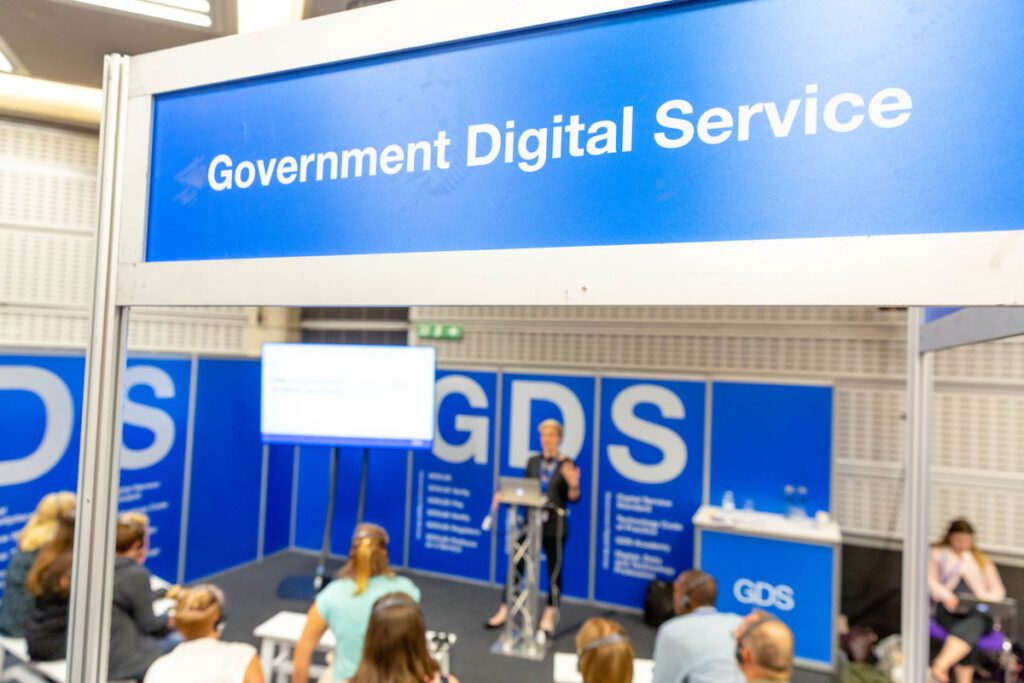Detailed guide: The GovTech Catalyst challenge process

GovTech Catalyst challenges help public sector bodies take advantage of new and emerging technology. Find out how the challenge and competition process is run.
Overview
The £20 million GovTech Fund, awarded through competitions, provides support to define, develop, test and access creative solutions to complex public sector problems.
The GovTech Catalyst (GTC) has funded 15 challenges.
Read more about the GovTech Catalyst’s objectives.
Who can submit a challenge
The GovTech Catalyst accepts challenges from public sector bodies, including:
- UK central government organisations
- devolved administrations
- local public sector organisations
Businesses and academic institutions are not eligible to submit challenges to the GovTech Catalyst. They can however pitch solutions to challenge competitions.
Reasons to be part of the GovTech Catalyst
Public sector challenge owners benefit from:
- the opportunity to explore creative solutions to operational and policy challenges
- funding to find and develop innovative solutions across all industry sectors
Intellectual property rights stay with the competition winners (not the government organisation).
Read more about challenge owner responsibilities within the GovTech Catalyst process.
Eligibility
To be selected for a GovTech competition, the challenge must describe a current public sector service or policy delivery problem where:
- the problem requires an innovative digital solution
- a solution will bring better services or reduced costs
- the public body is willing to buy the solution
Read more about the challenge selection criteria.
The GovTech Catalyst team cannot offer advice on the likely success of a proposed application.
Funding amounts
The total funding amounts are:
| Funding stage | Amount |
|---|---|
| Phase 1 challenge | £250,000 |
| Phase 1 solution provider | £50,000 (including VAT) |
| Phase 2 challenge | £1,000,000 |
| Phase 2 solution provider | £500,000 (including VAT) |
Timeline
Round 1
Five challenges were selected for funding in round 1:
1. Identifying Daesh still imagery
2. Tracking waste through the waste chain
3. Tackling loneliness and rural isolation
4. Cutting traffic congestion
5. Intelligent data to transform local council service delivery
| Date | Challenge stage |
|---|---|
| 18 January to 19 February 2018 | Public sector organisations submitted challenges. See all challenges submitted in round 1. |
| March 2018 | The GTC team contacted shortlisted challenge owners to confirm details to present to the steering board. |
| March and April 2018 | The GTC board selected challenges for the competition and all challenge owners were told if their challenge had been selected. |
| 14 May to 27 June 2018 | The first challenge competition. Registration closed on 20 June 2018. |
| 11 June to 25 July 2018 | The second challenge competition. Registration closed on 18 July 2018. |
| 16 July to 5 September | The third challenge competition. Registration closed on 29 August 2018. |
| 13 August to 26 September | The fourth challenge competition. Registration closed on 19 September 2018. |
| 24 September to 7 November | The fifth challenge competition. Registration closed on 31 October 2018. |
Round 2
Five challenges were selected for funding in round 2:
6. Improving firefighter safety and operational response
7. Making better use of data to guide public sector audits
8. Detecting and quickly identifying more illicit goods at the border
9. Understanding the overlaps between business regulations
10. Guaranteeing prescription continuity while people move between care providers
| Date | Challenge stage |
|---|---|
| 21 May to 25 June 2018 | Public sector organisations submitted challenges. See all challenges submitted in round 2. |
| July 2018 | The GTC team contacted shortlisted challenge owners to confirm details to present to the steering board. |
| July and August 2018 | The GTC board selected challenges for the competition and all challenge owners were told if their challenge had been selected. |
| 15 October to 28 November | The sixth challenge competition. Registration closed on 21 November. |
| 19 November 2018 to 16 January 2019 | The seventh challenge competition. Registration closed on 9 January. |
| 3 December 2018 to 23 January 2019 | The eighth challenge competition. Registration closed on 16 January. |
| 14 January to 27 February 2019 | The ninth challenge competition. Registration closed on 20 February 2019. |
| 4 February to 20 March 2019 | The tenth challenge competition is open. Registration closed on 13 March. |
Round 3
Five challenges were selected for funding in round 3:
11. Developing a travel network management system for new mobility
12. Monitoring the condition of social housing using sensors
13. Understanding and using Scottish land protected for nature and conservation
14. Predicting and sequencing adult social care to deliver a seamless service
15. Accelerating the building of new housing using better geospatial intelligence
| Date | Challenge stage |
|---|---|
| 9 October to 12 November 2018 | Public sector organisations submitted challenges. See all challenges submitted in round 3. |
| December 2018 | The GTC team contacted shortlisted challenge owners to confirm details to present to the steering board. |
| December 2018 and January 2019 | The GTC board selected challenges for the competition and all challenge owners were told if their challenge had been selected. |
| 4 March to 17 April 2019 | The eleventh challenge competition is open. Registration closes on 10 April 2019. |
| 1 April to 15 May 2019 | The twelfth challenge competition. Registration closes on 8 May 2019. |
| 13 May to 26 June 2019 | The thirteenth challenge competition. Registration closes on 19 June 2019. |
| 10 June to 24 July 2019 | The fourteenth challenge competition. Registration closes on 17 July 2019. |
| 15 July to 28 August 2019 | The fifteenth challenge competition. Registration closes on 21 August 2019. |
Public sector challenge process
There are 7 stages. Read the specific actions for challenge owners at each stage.
1. Challenge submission
Public sector bodies can submit operational service and policy delivery challenges during the challenge submission window. Read how to submit a challenge.
2. Challenge selection
Challenges are selected based on the challenge selection criteria.
All challenges are initially assessed by the GTC team and a cross-government assessment panel of senior officials.
A shortlist is drawn up and the shortlisted challenge owners are contacted by the GTC team. The final selection of challenges to be funded is then recommended to the GovTech Catalyst Steering Group and ministers by the assessment panel.
Competition slots are scheduled after challenge selection, and in conjunction with challenge owners.
All challenge owners will get feedback on their proposals, even if they are not selected for funding. Some may be encouraged to apply for the next round of funding.
3. Phase 1: setting up and running a competition
Innovate UK supports the GovTech Catalyst to run challenge competitions using the SBRI competition process. Businesses are invited to pitch innovative solutions to the challenge. Winning pitches get funding from the GovTech Fund to develop their solutions.
The challenge owner picks the winning solutions from a shortlist created by Innovate UK and reviewed by challenge owners and the GTC team.
Phase 1 competitions are open for applications for up to 6 weeks.
4. Phase 1: implementation and review
The challenge owner supports the competition winners to build a functioning prototype.
Phase 1 solutions focus on exploring the technical and commercial feasibility of the project, showing how a solution can meet a well-understood set of user needs.
Phase 1 lasts up to 12 weeks after the agreed start date of phase 1, which will happen after:
- challenge owners agree research and development services contracts with competition winners
- competition winners get any necessary security clearance
Competition winners and challenge owners will report on the success of each solution at the end of phase 1.
5. Phase 2: evaluation
Some phase 1 challenges may qualify for additional funding to further develop a working proof of concept. A challenge can get phase 2 funding for more than one solution.
Only phase 1 solution providers can enter the phase 2 selection process, which uses a request for tender process. If no phase 1 solution providers want to participate in a phase 2, then there will be no phase 2.
6. Phase 2: implementation
Phase 2 should result in a product or service that the challenge owner has tested in an operational environment and is confident will help to address the underlying service needs.
The challenge owner will support the competition winners to iterate the phase 1 prototypes based on ongoing research and testing with users into a complete proposition.
Competition winners and challenge owners will report on the success of each solution at the end of phase 2.
Phase 2 challenges can last up to 12 months, including development and testing with the challenge owner. For Artificial Intelligence innovation, extended evaluation time will need to be planned for supervised and unsupervised learning.
7. Procurement and adoption
Challenge owners must intend to procure any successful phase 2 solutions.
They should:
- follow their own procurement process
- start to write the business case for purchase of a solution and begin discussions with their internal procurement team as soon as practical
GovTech Catalyst Steering Group
The GovTech Catalyst Steering Group:
- decides which GovTech Catalyst challenges are accepted
- decides how to distribute the GovTech Catalyst Fund
- oversees the running and management of the programme
Group members come from:
- BEIS
- DCMS
- Devolved authorities
- Department for Environment, Food and Rural Affairs (Defra)
- GDS
- Her Majesty’s Treasury (HMT)
- Innovate UK
- Number 10
The GTC Steering Group reports to:
- Oliver Dowden, Parliamentary Secretary at the Cabinet Office
- Liz Truss, Chief Secretary to the Treasury
- Chris Skidmore, Minister of State for Universities, Science, Research and Innovation
The Accounting Officer is Alex Chisholm, BEIS Permanent Secretary.
Contact information
Contact the GovTech Catalyst team with any questions at:[email protected].
Published 10 May 2018
Last updated 23 July 2019 + show all updates
- Updated with a link to the final round 3 competition
- Updated with details of the latest challenges
- Latest challenge competition details added.
- Round 3 selected challenges added.
- Processes updated for Round 3.
- Round 1: fifth challenge competition now open.
- Details of successful Round 2 challenges added.
- We’ve updated the eligibility criteria and round 2 timeline in this guidance. We’ve added links to new guidance on the challenge owner responsibilities and how to submit a challenge to the GovTech Catalyst.
- First published.












Responses